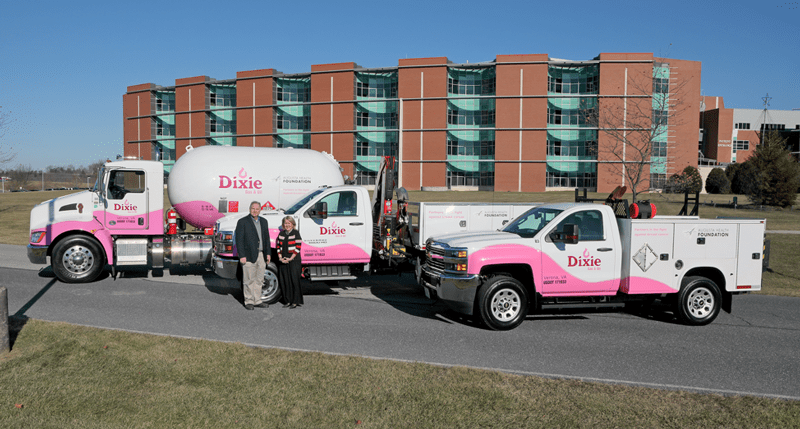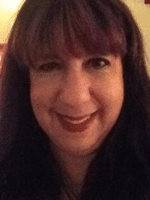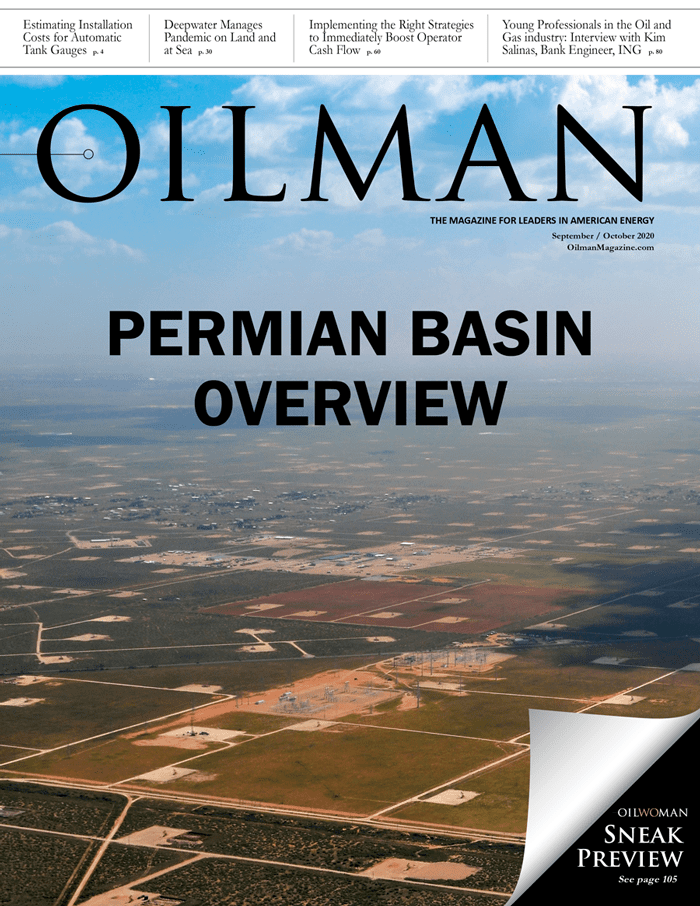Think pink! In 1985, National Breast Cancer Awareness Month (BCAM) became an annual addition to the worldwide calendar, while in 1992, the pink ribbon officially came to be a ubiquitous symbol of breast cancer awareness. We’re all used to seeing those pink bows adorning product packages and signs every October.
But not everything needs to be tied up with a pretty pink bow to represent awareness about breast cancer, which, as estimated by the Susan G. Komen Foundation, will total over 325,000 new cases in women in 2020 and over 3,100 in men. Many energy companies are thinking outside the bow to mark BCAM through a variety of programs, donations, partnerships and products.
Focus on Hope
KPMG LLP, the U.S. audit, tax and advisory services firm, which operates from 106 offices with more than 35,000 employees and partners throughout the U.S., serves many energy companies, and this year is working in collaboration with the American Cancer Society (ACS), which is creating custom-designed face masks for KPMG employees and their personal networks to purchase. The design themes will focus on hope, while raising awareness for breast cancer. For every mask purchased, a medical-grade personal protective mask will be donated to a cancer patient being treated at an ACS Hope Lodge in the U.S.
To inform people about the work the ACS does, support and promote healthy communities, and inspire others to get involved with the organization, KPMG is asking its ACS network, which includes employees who serve as board members, volunteers, fundraisers and advocates for ACS, to share their favorite healthy recipes. Once the recipes are compiled, KPMG’s internal designers will create a digital cookbook (as yet unnamed) that will be uploaded to a PDF link that can be shared within and outside the company. The e-cookbook will be free, but recipients will have the option of donating to the ACS.
Here is one healthy (and delicious!) dessert recipe from the forthcoming e-cookbook:
Peanut Butter Banana Shake
- 1-2 tablespoons of peanut butter
- 2 ripe bananas (cold or frozen is best)
- 1 cup of unsweetened almond milk
- 1 cup of ice
- 1 tablespoon of natural sweetener, such as honey, agave nectar or maple syrup (optional)
Combine all ingredients in a blender and mix until fully combined. Best served cold, this recipe yields about two 8-ounce servings.
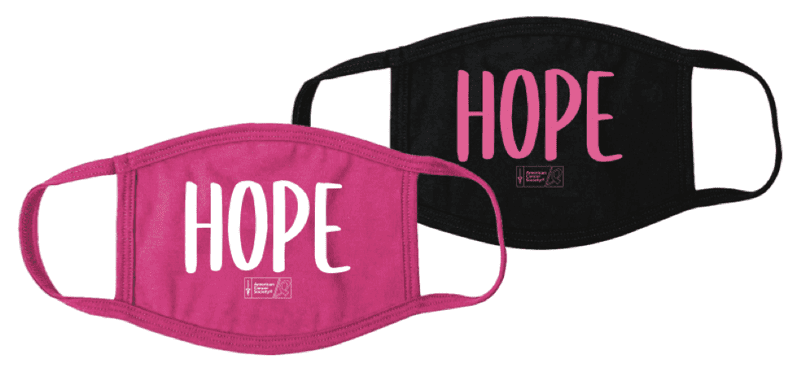
initiative with KPMG.
Raising Funds on the Run
Many companies choose to participate in and sponsor The Susan G. Komen® Foundation’s Race for the Cure, the organization’s signature annual fundraiser that includes a series of 5K runs and fitness walks. One such company is Marathon Petroleum Corporation in Findlay, Ohio. It has been a primary sponsor at the $25,000 level in its home city for seven years.
According to a spokesperson for Marathon, with an additional $90,000 its employees have donated to the cause over the past several years, the grand total raised for Race for the Cure is about $265,000.
Because of the COVID-19 pandemic, most of the local races and walking events will have to be held virtually this year. [See sidebar for details.]
Driving Awareness
Regional propane distribution company Dixie Gas & Oil in Verona, Virginia, shows what companies can do to support breast cancer awareness and prevention when they’re willing to get creative.
Think pink . . . trucks.
In January 2020, Dixie entered into a partnership with the Augusta Health Foundation, the charitable arm of the health system in Fishersville, Virginia, that secures philanthropic support to strengthen the system and meet the community’s needs. As terms of the partnership, Dixie will donate a certain dollar amount annually, which will fund about 40 mammograms a year at Augusta for those without health insurance or those who cannot afford to pay. That means 40 people will get the much-needed screening and a possible discovery of breast cancer that otherwise would have gone untreated.
The cause of breast cancer is close to the heart of Chris Earhart, president of Dixie Gas & Oil. “Breast cancer took my mother when I was young and there are many families impacted by this disease,” he says. “We need to do all we can to support early diagnosis and treatment.”
In addition to funding for mammograms, Dixie also has breast cancer awareness banners that hang in Dixie and Augusta’s locations. They are up year-round, not just in October, and are an indication of Dixie’s ongoing support.
Dixie also tries to do a little something extra during BCAM to elevate customer awareness of breast cancer by including relevant information in the envelope along with the customer’s bill. Depending on the marketing budget, Dixie also may use other forms of media to heighten awareness.
Now what about those pink trucks? There are three altogether – a propane bobtail, a crane truck that is used to set tanks in the ground, and a service truck. Dixie chose to paint three different trucks in a pink format to cover as much territory as possible and get more eyes on breast cancer awareness.
“Dixie is committed to supporting the communities we serve, and we are excited about this ongoing partnership with the Augusta Health Foundation,” says Earhart. “Dixie has made significant contributions in the fight against breast cancer over the years and this partnership is a wonderful opportunity to continue support for this important work.”
How Your Company Can Set the Pace
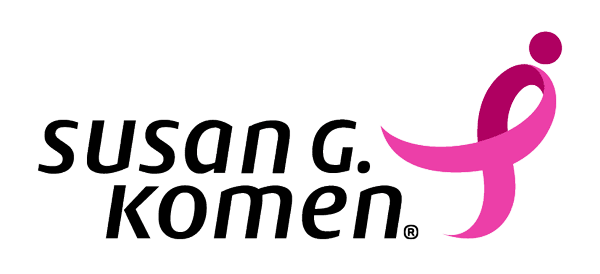 The Susan G. Komen® Race for the Cure and MORE THAN PINK Walk series of events are great ways for companies to make a difference in the fight against breast cancer. These events are important fundraisers for the breakthrough research Komen supports to find cures for breast cancer and they create opportunities for patients and supporters to come together, wherever they are, and know that they’re not alone in their breast cancer journey. This year Komen’s fall races and walks have transitioned to virtual events so that participants can safely walk or run where they are and help raise those important dollars. How can the energy industry get involved and support the women and men affected by breast cancer?
The Susan G. Komen® Race for the Cure and MORE THAN PINK Walk series of events are great ways for companies to make a difference in the fight against breast cancer. These events are important fundraisers for the breakthrough research Komen supports to find cures for breast cancer and they create opportunities for patients and supporters to come together, wherever they are, and know that they’re not alone in their breast cancer journey. This year Komen’s fall races and walks have transitioned to virtual events so that participants can safely walk or run where they are and help raise those important dollars. How can the energy industry get involved and support the women and men affected by breast cancer?
Become a sponsor: Supporting the event through local sponsorship is one way to increase brand recognition and show your community and employees your dedication to ending breast cancer. Each event has various levels of sponsorship available for this year’s event or consider budgeting this for 2021.
Start a corporate team: Whether your company is back in the office or working from home, a corporate team is a way to support an employee going through breast cancer, show staff members the importance of taking care of themselves by being active, and building company morale overall. Offer to cover employees’ registration fees or offer a match or incentive for anyone who raises a certain dollar amount. Leadership is key, so working with your human resources (HR) department can result in even greater reach.
Match gifts: Encourage employees to make a donation to Susan G. Komen® during National Breast Cancer Awareness Month and offer a match to that donation. This will show employees your company is supporting a cause they feel is important.
Visit the event website (ww5.komen.org/RaceForTheCure) to find information on your local event and learn more about how you can get involved.
Headline photo: Chris Earhart, president of Dixie Gas & Oil, in Verona, Virginia, and Mary Mannix, president and CEO of Augusta Health Foundation.
Denise Porretto is a freelance writer in Princeton, New Jersey, who covers women’s and children’s health. Her byline has appeared in many national magazines, such as Parents and Redbook, and online for healthline.com.

